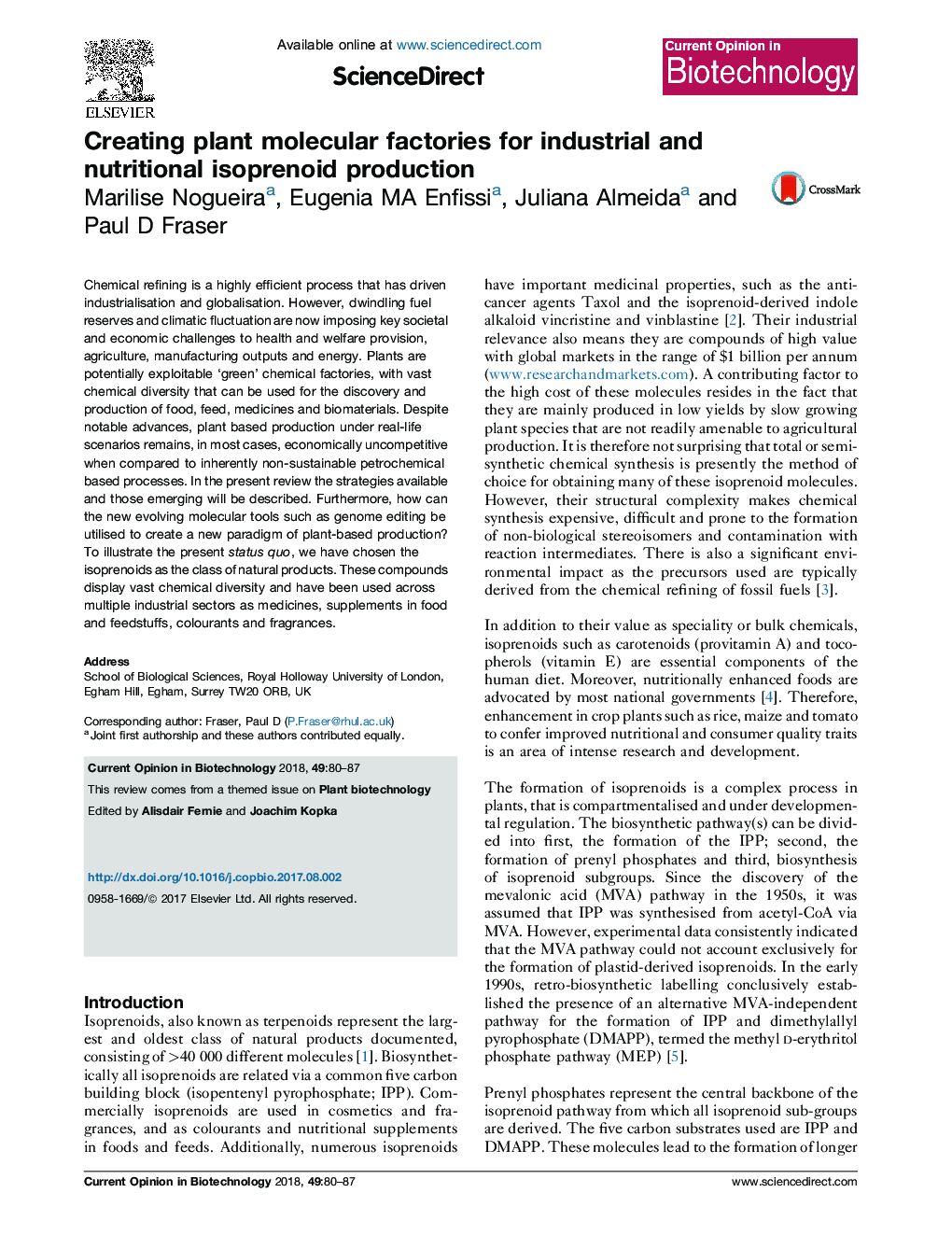| Article ID | Journal | Published Year | Pages | File Type |
|---|---|---|---|---|
| 6451510 | Current Opinion in Biotechnology | 2018 | 8 Pages |
â¢The biosynthesis of plant isoprenoids is highly regulated and compartmentalised.â¢Metabolic engineering has produced useful isoprenoids in plants.â¢New plant breeding techniques offer new potential for the isoprenoid production.
Chemical refining is a highly efficient process that has driven industrialisation and globalisation. However, dwindling fuel reserves and climatic fluctuation are now imposing key societal and economic challenges to health and welfare provision, agriculture, manufacturing outputs and energy. Plants are potentially exploitable 'green' chemical factories, with vast chemical diversity that can be used for the discovery and production of food, feed, medicines and biomaterials. Despite notable advances, plant based production under real-life scenarios remains, in most cases, economically uncompetitive when compared to inherently non-sustainable petrochemical based processes. In the present review the strategies available and those emerging will be described. Furthermore, how can the new evolving molecular tools such as genome editing be utilised to create a new paradigm of plant-based production? To illustrate the present status quo, we have chosen the isoprenoids as the class of natural products. These compounds display vast chemical diversity and have been used across multiple industrial sectors as medicines, supplements in food and feedstuffs, colourants and fragrances.
Graphical abstractDownload high-res image (94KB)Download full-size image
